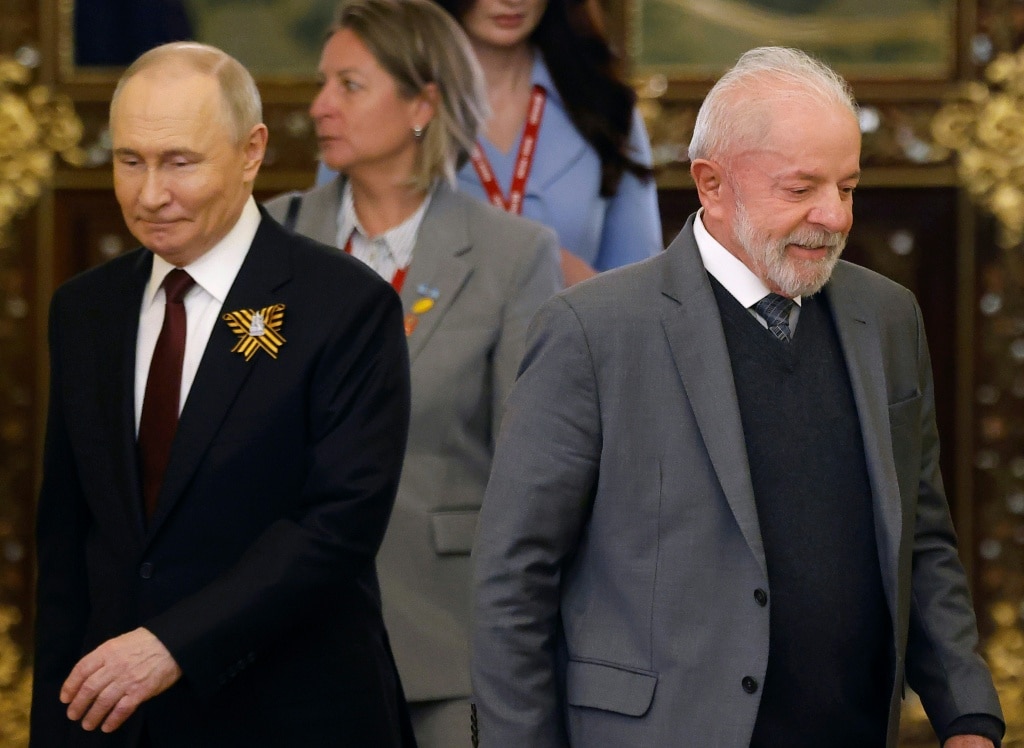Court raps Brussels for lack of transparency on von der Leyen vaccine texts
Court raps Brussels for lack of transparency on von der Leyen vaccine texts

A top court on Wednesday ruled that the European Commission had failed the transparency test by declining to release text messages sent by Ursula von der Leyen to the head of Pfizer as the bloc tried to secure Covid vaccines.
Siding with The New York Times, which brought the case, the Court of Justice of the European Union (EUCJ) said the commission did not give "plausible" explanations as to why it did not hand over the texts to the US daily.
The ruling is a blow to von der Leyen, the commission president, and gives weight to critics who have accused her of centralised and opaque decision-making.
In a sharp rebuke of the EU's top leadership body, the Luxembourg based court wrote that "The Commission cannot merely state that it does not hold the requested documents."
It "failed to explain in a plausible manner why it considered that the text messages exchanged in the context of the procurement of Covid-19 vaccines did not contain important information," the court added in a statement.
The verdict, which can be appealed, quashes the commission's decision not to hand over the messages and sends the EU executive back to the drawing board in its duty to respond to The New York Times' request.
However, given the uncertainty around whether the messages have been deleted or not, what happens next is not overly clear.
The commission said it "will adopt a new decision providing a more detailed explanation" in response to The Times -- while also considering whether to appeal Wednesday's verdict.
"Transparency has always been of paramount importance for the Commission and President von der Leyen," it said in a statement.
- 'Victory for transparency' -
The case centred on elusive exchanges between von der Leyen and Albert Bourla, chief executive of Pfizer -- which was chosen by the bloc as its main vaccine supplier at the height of the pandemic.
The New York Times, which revealed the existence of the messages, sued the commission in 2023 after Brussels declined to produce them following a freedom of information request.
The newspaper hailed the ruling as a "victory for transparency and accountability", saying it sent "a powerful message that ephemeral communications are not beyond the reach of public scrutiny".
The commission argued it could not find the texts because they had not been recorded and archived -- something it says is done only when the content is deemed "substantive".
But such reasoning was rebuffed by the lower chamber of the EUCJ, which chastised the EU body for not having explained what searches it carried out to find the documents, and why it no longer had them.
"The Commission has not sufficiently clarified whether the requested text messages were deleted and, if so, whether the deletion was done deliberately or automatically or whether the President's mobile phone had been replaced in the meantime," it said.
The EU moved swiftly after the Covid pandemic emerged in 2020 to secure vaccines for member countries to buy for their citizens and residents at a time of massive global demand for the shots.
But many aspects of the procurement from Pfizer have been kept confidential, leading to accusations of a lack of transparency -- and several legal proceedings in Belgium and with EU courts.
- 'Maladministration' -
Lawyers for the European Commission had argued that the private messages did not constitute part of the vaccine negotiation.
They might have involved side issues, such as von der Leyen and Bourla agreeing to speak on a certain day, at a certain time, they suggested.
Earlier this week, an EU official argued that commission workers, including its chief, do not have an obligation to record all their emails, texts and instant messaging chats, as this would be "materially impossible".
The commission's lawyer, Paolo Stancanelli, said in November that its services asked to track down the messages after The Times reached out to the EU chief's cabinet, which replied it was unable to find them.
But in January 2022, the EU's ombudsman had already described this as "maladministration", saying that the messages should have been subject to the bloc's transparency rules.
"This ruling is about more than transparency: it is about reinstating the institutional accountability the European Commission has been sorely lacking," anti-graft group Transparency International said of Wednesday's verdict.
mad-ub/ec/bc



